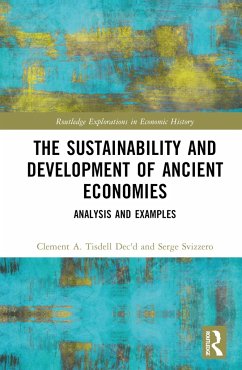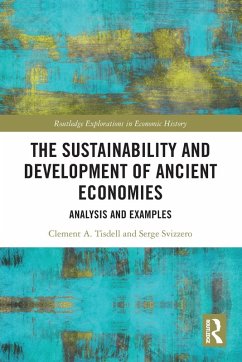
A History of Modern Greek Economic Thought
Versandkostenfrei!
Versandfertig in 6-10 Tagen
144,99 €
inkl. MwSt.
Weitere Ausgaben:

PAYBACK Punkte
72 °P sammeln!
Tracing the evolution of economic ideas in the context of the economic history and economic policy issues in Greece, this book examines the history of modern Greek economic thought from the War of Independence from Ottoman rule in 1821 until the present.The book explores how native, religious-oriented economic thought was secularized and merged with different economic discourses during successive historical periods. It traces how the dissemination of French and German economic thought in the 19th century was followed by British and US influences in the 20th century. The institutionalization of...
Tracing the evolution of economic ideas in the context of the economic history and economic policy issues in Greece, this book examines the history of modern Greek economic thought from the War of Independence from Ottoman rule in 1821 until the present.
The book explores how native, religious-oriented economic thought was secularized and merged with different economic discourses during successive historical periods. It traces how the dissemination of French and German economic thought in the 19th century was followed by British and US influences in the 20th century. The institutionalization of economics as a discipline in the 1920s and its internationalization after 1971, with their effects on the emergence of modern mainstream and heterodox thought, are also discussed. Finally, reference is made to contemporary Greek economic thought in the frame of European Union economic thinking.
This book will be of interest to readers in the history of economic thought, economic history, intellectual history, Greek history, and modern European history more broadly.
The book explores how native, religious-oriented economic thought was secularized and merged with different economic discourses during successive historical periods. It traces how the dissemination of French and German economic thought in the 19th century was followed by British and US influences in the 20th century. The institutionalization of economics as a discipline in the 1920s and its internationalization after 1971, with their effects on the emergence of modern mainstream and heterodox thought, are also discussed. Finally, reference is made to contemporary Greek economic thought in the frame of European Union economic thinking.
This book will be of interest to readers in the history of economic thought, economic history, intellectual history, Greek history, and modern European history more broadly.













